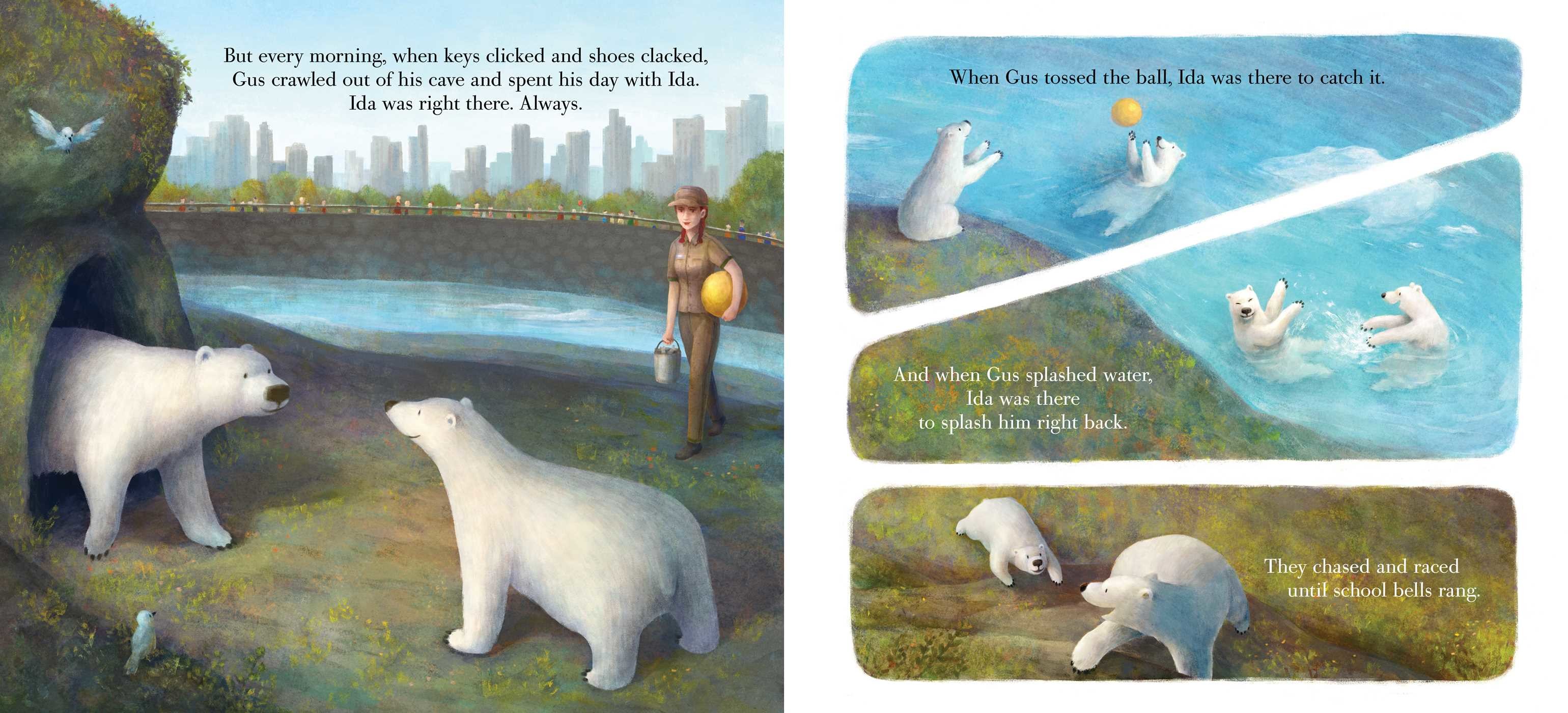 Issue books do their part to make the bookselling world a little bit better place to be sure. Nonetheless it is a rare issue book that transforms its subject into something relevant to every reader. Loss is universal, of course, but a transcendent issue book embodies that universality by making a story applicable to readers not currently experiencing the issue.
Issue books do their part to make the bookselling world a little bit better place to be sure. Nonetheless it is a rare issue book that transforms its subject into something relevant to every reader. Loss is universal, of course, but a transcendent issue book embodies that universality by making a story applicable to readers not currently experiencing the issue.
There are some very good picture books whose purpose is to explain and support children who are experiencing loss. Sammy in the Sky and Samsara Dog are just the thing for a child dealing with the loss of a dog. Grandma’s Gloves and Thank You, Grandpa are two good examples of excellent books dealing with the loss of a grandparent. Ida, Always, however, stands out as that exceptional issue book that expands the audience into the realm of being a book everyone should read.
This story, based on real events, follows two pen mates, best friend polar bears in a zoo, Ida and Gus. Ida is sick and soon to die and the book follows Ida’s illness, slow fading away, and death, followed by Gus’s bereavement. Caron Levis’ narrative employs a deft combination of accessibility, emotional detail, honesty, warmth, and a measured but deeply credible and moving acceptance. It manages, remarkably, to be both heartbreaking and comforting at the same time. The exquisite illustrations by Charles Santoro are in perfect harmony with the quiet power of the story.
 More than any other book on loss, Ida, Always manages to tell a story that is just as good at comforting a child experiencing loss as it is at explaining loss to a child who has yet to experience it. This second quality lifts Ida, Always into being “a book for every child.*
More than any other book on loss, Ida, Always manages to tell a story that is just as good at comforting a child experiencing loss as it is at explaining loss to a child who has yet to experience it. This second quality lifts Ida, Always into being “a book for every child.*
What could be more important than laying a compelling groundwork for a child to absorb loss when they encounter it themselves and empathize when they see it in others? When Ida explains to Gus that always being there means that “you don’t have to see (something) to feel it,” like the city outside the zoo with its lights and sounds, it is a sublimely unfettered metaphor for the continuing presence of those we can no longer see. There is a tenderness to their friendship, and a quiet resilience in Gus’s mourning which buoys the reader even while calling forth tears. Long may Gus and Ida live in on our counter display in ever-diminishing and then replenishing numbers!
*Full disclosure, okay, almost everyone. We did have one customer return a copy. A grandmother had bought it simply because her granddaughter’s name was Ida. She had not realized that Ida died in the story. She asked if we had any other books with a character named Ida. We did, of course, but the great Ida B: And Her Plans to Maximize Fun, Avoid Disaster, and (Possibly) Save the World, wasn’t quite the thing for a five-year-old either. I do hope that the next time one of you is producing a picture book you will consider filling the void by penning a cheery Ida protagonist.
“Ida, Always” and for Everyone (Almost)
Kenny Brechner - April 7, 2016
Leave a reply
